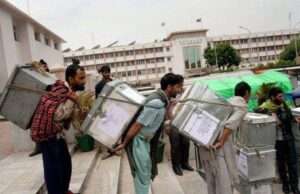The Ministry of Home Affairs (MHA) has permitted the Government of Jammu and Kashmir to impose property tax in the union territory. The property tax will be imposed by the Municipal Corporations, Municipal Committees, and Municipal Councils in their respective areas.
As per the news provisions, the tax should not exceed more than 15% of the total value of land, building, and vacant land unless exempted. On March 31, 2011 the legislative Assembly passed the bill to impose a property tax on commercial and residential properties falling under the municipal limits but the bill was kept on hold after the opposition party walked out of the assembly.
The tax was passed under several amendments in J&K Municipal Act 2000, J&K Municipal Corporation Act 2000, and J&K Recognition Act 2020. The bill was issued by Union Home Secretary Ajay Kumar Bhalla. Earlier no property tax was imposed till J&K was under a different constitution. A provision may be passed by the Municipal Corporation according to which an amount not exceeding the amount being paid as annual tax for some properties will be fixed.
But the provision will come into power only when the government will approve it. All the money which will be generated from the property tax will be utilized to improve the facilities in the UT of J&K.
In self-occupied buildings which will be used for the residential purpose, the payable property tax will be reduced by 25%, and in self-occupied non-residential buildings, the property tax will be according to the recommendations from Municipality. According to the provision the person liable to pay property tax will pay the tax in two installments. “Every owner or occupier has to pay the property tax every year to the Executive Officer or any other authorized officer within the mentioned period and in a prescribed manner,” the provision read. Moreover, there is a provision for inspection of the return filed and the action will be taken against those who failed to pay tax on time.
The Owner of the property has to pay the property tax only if either the tenant has sub-let the land or building to any other tenant or if the owner doesn’t have the current possession of the land or building. However, in case the owner has lent the land to the tenant for a time period of more than 1 year and the tenant builds a building upon the land then the tenant has to pay the property tax whether the building is in the occupation of such tenant or not. The property tax shall be revised once in 3 years by modifying the tax by such percentage but not more than 10% as prescribed earlier.
According to an official of the Housing and Urban Development department “all the laws which are applicable in India will now be applicable in J&K since J&K has now been recognized as the Union Territory. Property Tax is already applicable in many states and Union Territories and people have to pay the tax”. Khurshid Sanai Commissioner, Srinagar Municipal Corporation said “property tax will be imposed in Srinagar and we are conducting detailed surveys of different areas falling under different Municipal Corporations and then accordingly charging property tax. It will take a time period of 2-3 months to formulate the policy and in the future, we will evaluate the tax rates”.
As per the law, a 10% tax will be charged from all the commercial buildings and a 4% tax will be charged from all the residential buildings falling under the Municipal Corporations of J&K. Lands or buildings up to 10 marlas are exempted from paying property tax. In the case of Municipal Committees, the commercial properties were to be charged a maximum of 3% of tax while the residential buildings were to be charged with a 7% property tax. The commercial buildings with a maximum ceiling will be charged with a 3% tax. Drainage and water disposal are the two main problems being faced by the locals of Kashmir and the government will improve these with the tax collected as noted in the newspaper.
According to the new provisions when a new building is constructed or an old building is reconstructed or a vacant building is re-occupied then the person responsible for paying property tax and has to give written notice within 15 days from the date of its completion or occupation to the Executive officer. When any building or part of the building is demolished or removed by the Municipality under any condition shall give written notice within 15 days from the date of its removal or demolition and the person shall continue to pay tax and is liable to pay the tax.



